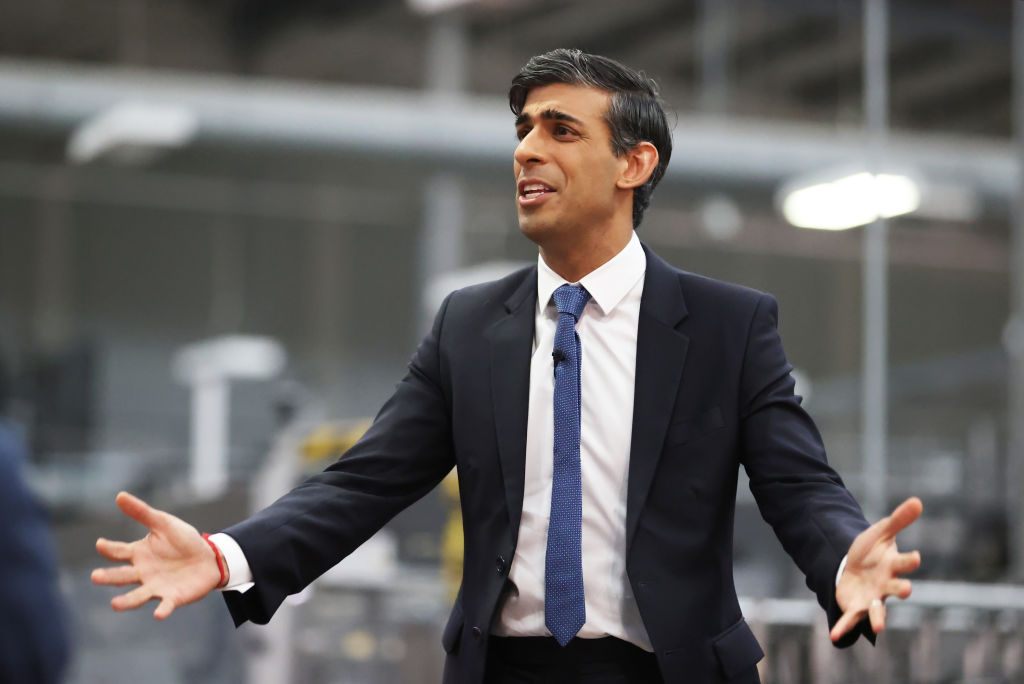The reaction to Rishi Sunak’s Protocol changes has so far been at the upper end of expectations in No. 10. It gets a thumbs up from the Fleet Street papers – including the still-influential Daily Mail which has tended to splash positive stories about Boris Johnson. It has received warm words from a raft of pro-Brexit grandees like Michael Howard, David Davis and Liam Fox. And crucially it has not attracted the ire which accompanied previous deals like the Chequers Agreement of 2018. Indeed, at the time of writing, no Conservative MP has publicly said that they will vote against it.
As those in No. 10 are all too aware, pitfalls still lie ahead in both Belfast and Westminster
So far, so good. But, as those in No. 10 are all too aware, pitfalls still lie ahead in both Belfast and Westminster. There are mixed signals as to whether the DUP will support it. Sir Jeffrey Donaldson, its leader, made positive noises in the House last night – but Sammy Wilson and Ian Paisley were more critical in the TV studios. At Stormont, Jim Allister, the leader of the Traditional Unionist Voice, has already said he expects the DUP to reject the deal. He claims it’s ‘much spin, not a lot of substance’ and means that the Protocol ‘effectively stays’. This is arguably a more significant intervention than the words of Brexiteers like Steve Baker. Donaldson says that the DUP will take its time to reach a collective decision. But he knows all too well about the dangers in allowing his party to be outflanked. Unionist parties which act as reluctant salespeople for a deal rarely fare well.
In Westminster, the European Research Group of Conservative MPs meets tonight, having reconvened its ‘star chamber’ of expert lawyers to comb through it. Labour have already said that they will back a deal, if it should come to a vote in the House. But there will still be a psychological blow to Sunak if the number of Tory rebels is more than 33 – the current size of his government’s working majority. Labour can then argue that the deal would not have passed without their support; that is was they who, arguably, ‘got Brexit done’. Most estimates have put the number of potential Tory rebels as between 20 to 30. The membership of the ERG is believed to be higher than that – one meeting last week had an attendance of more than 50, though some were peers.
Sunak also must take care with his rhetoric. He faces a difficult balancing act when selling this deal as being of benefit to Northern Ireland, seeking to play up the benefits of single market membership while assuring the DUP that it represents a ‘real’ Brexit. The Prime Minister told a Q&A today that NI is part of the ‘the world’s most exciting economic zone’ – comments that were swiftly seized upon by Remainers. He also said to Today that under his agreement, green lane goods ‘will now move without customs bureaucracy’. But they still require a ‘Trusted Trader’ application with 21 data fields (down from 80) still applying – a point that Tory critic David Campbell Bannerman was swift to make.
There seems to be a near-universal consensus that Sunak’s deal is an improvement on the existing arrangements. But, though improved, it remains an imperfect deal, which will force Eurosceptics to answer a key question: how much compromise are they willing to make?
This article first appeared in The Spectator’s Lunchtime Espresso newsletter. Explore our range of newsletters here.







Comments